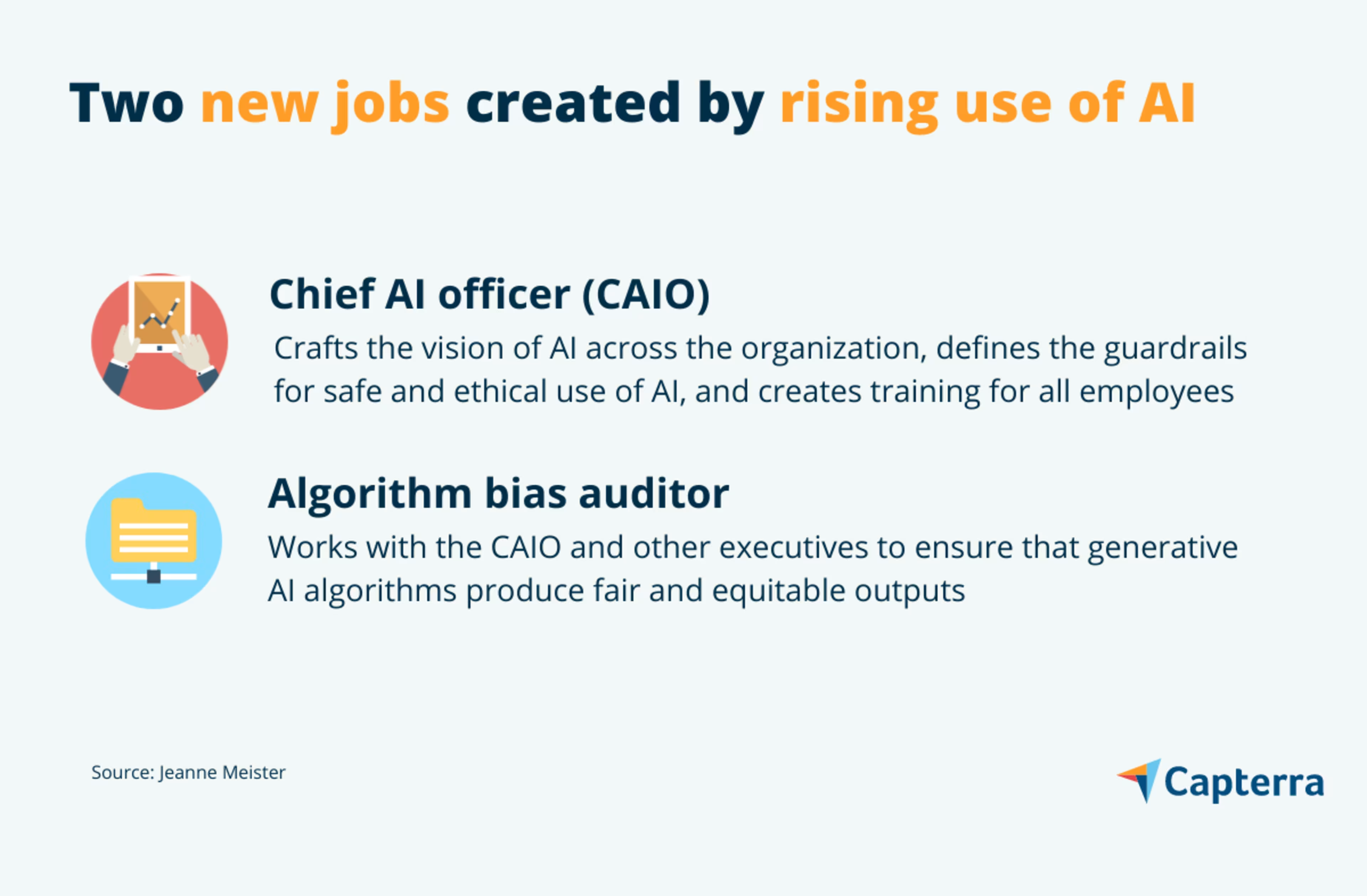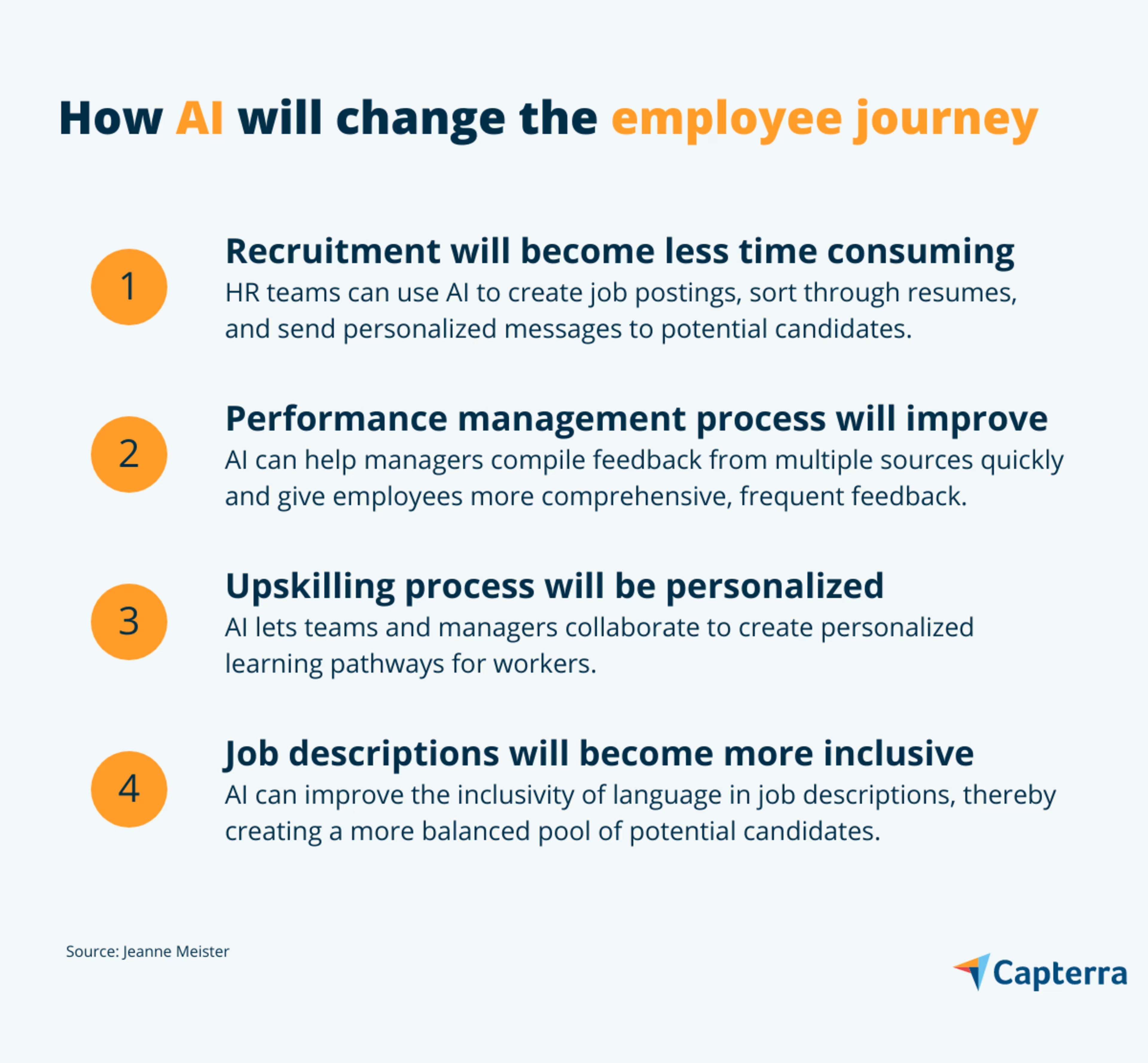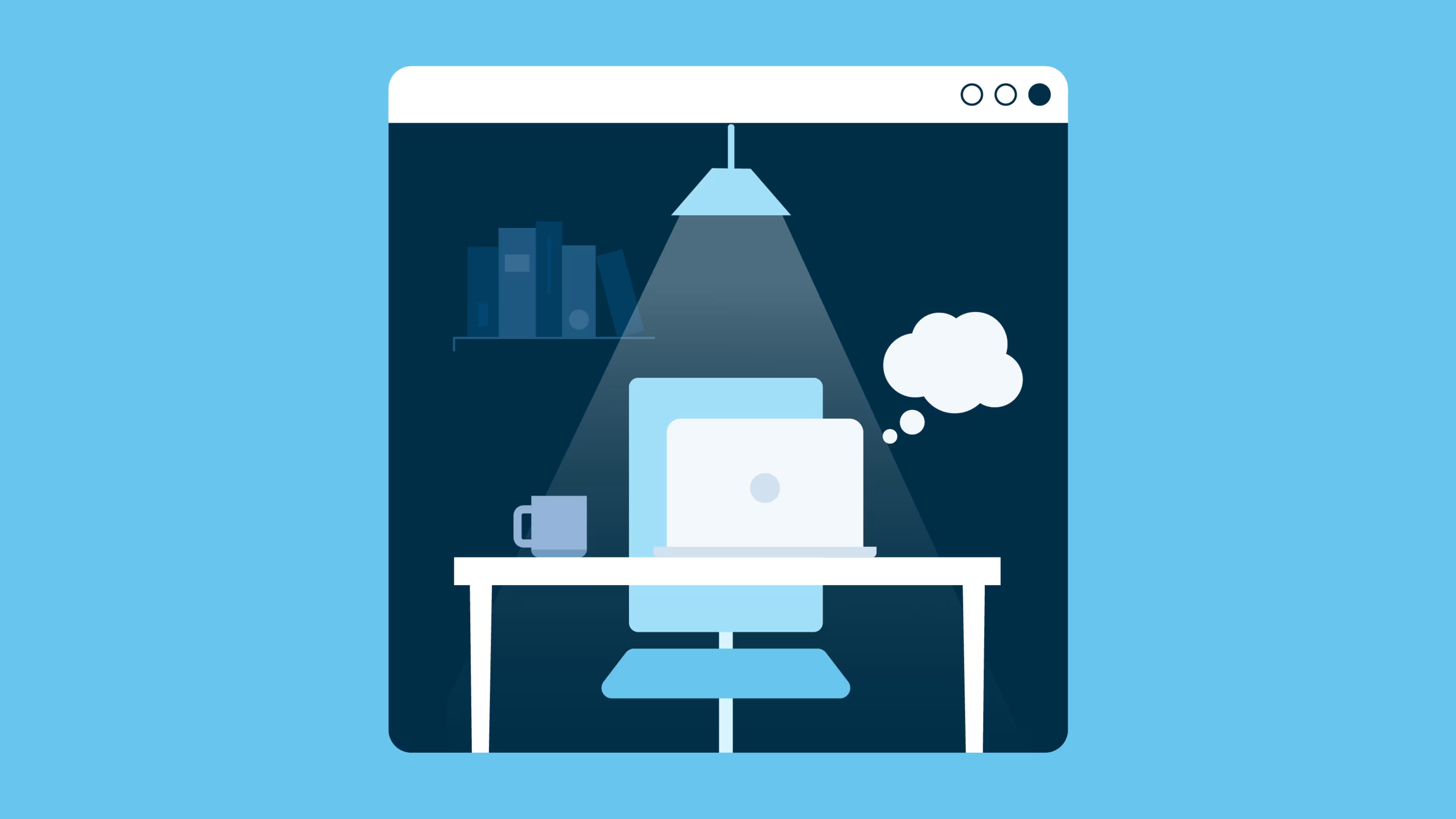Capterra interviews Jeanne Meister on how AI can be used in the workplace, from recruiting to upskilling.
Nearly every discussion around generative AI over the past 18 months has centered around AI replacing human jobs. But what about the other side of the equation?
“The fact is that the explosive use of AI is a catalyst for job replacement, job creation, and job redesign—all at the same time. So, I’m a big believer that the emphasis within companies will be on understanding where job displacement and creation will occur and at the same time focusing on upskilling and job redesign as generative AI gains traction in organizations.”


Jeanne Meister
Workplace futurist
We sat down with Meister to learn more about what those AI-enabled roles might look like. Along the way, we explored how AI will transform HR and talent management strategies in 2024. We also unpacked steps SMBs should take to ensure the ethical and trustworthy use of AI within their organizations.
Meet your new ‘work buddy’
Instead of replacing jobs, generative AI is emerging as a value-add to existing workers thanks to its advanced automation capabilities. In the next 12-24 months, Meister says most employees may see a drastic change in their workplace.
“Generative AI will be our new work buddy, helping us do routine stuff and freeing us up so we can leverage our uniquely human skills like analytical thinking, creativity and relationship building,” Meister says.
Like any good friend, generative AI will go above and beyond worker expectations. As a recent example, Meister discusses when her team used an AI-enabled chat assistant to take meeting notes. Not only did the chatbot take impeccable notes, but it also captured the sentiment of meeting attendees, identifying those in favor, those not in favor, and those who supported next steps.
“This can be very powerful,” Meister says, adding that some major companies are now creating their own AI-powered co-pilots to boost employee productivity.
Two hot new AI career paths
What are some of those new roles that generative AI will create? Meister mentions these two:

4 ways AI will change HR dramatically in 2024
Because generative AI will impact nearly every employee within an organization, it’s only natural that HR teams will see the biggest benefits. Meister sees these four areas of HR as prime for reinvention with AI in 2024:

Recruitment
Recruiting today is time consuming, filled with bottlenecks that increase the time to hire and chase away qualified candidates. AI can expedite the entire process.
“HR teams can use AI to create job postings, sort through resumes and, most importantly, send personalized messages to potential candidates,” Meister says.
Performance management
Within many companies, the current performance management process is broken, but AI can offer multiple potential fixes. It can help managers compile feedback from multiple sources quickly and give employees more comprehensive, frequent, and real-time feedback. AI can also determine objectively whether employees have hit their goals.
Upskilling
AI brings a potential remedy to existing skills and talent gaps. Meister envisions a future where AI allows teams and managers to collaborate while they create personalized learning pathways for workers. AI can also empower team productivity within the workplace in multiple ways.
“AI can help managers generate personalized messages to team members and translate the message in multiple languages,” Meister says. “It can generate different points of view on a particular business problem, and it can provide guidance on creating a safe space to practice giving feedback to a team member.”
Diversity, equity, and inclusion (DEI)
Meister sees multiple DEI use cases for generative AI. It can, for example, improve the inclusivity of language in job descriptions, thereby creating a more balanced pool of potential candidates. Additionally, large companies are using AI to create internal talent marketplaces. They are online hubs where workers can connect with mentors and access new full time roles, stretch assignments, or mentors to expand their capabilities.
These marketplaces are a powerful way to improve job satisfaction, boost employee retention, and enhance DEI initiatives. According to Meister, many of these new job roles and stretch assignments (identified through their internal talent marketplace) are going to diverse employees.
But, can AI be trusted? 5 ways to safeguard AI
For AI to make a continued impact in 2024, SMBs must put frameworks in place to ensure it’s used ethically and responsibly. Meister recommends taking these five steps:
Create a cross functional team. Representatives from HR, IT, Legal, and business units should create a shared vision for how generative AI will be piloted in the organization.
Institute mandatory training. HR leaders should teach all employees the basics of generative AI—what tools are permitted, how to use them, what the company guidelines are regarding AI, and importantly, and how to create prompts that will generate the most accurate answers to your questions.
Always keep a human in the loop. “Humans and machines always have to work together,” Meister says. As such, it’s okay to use AI tools to help inform hiring or retention choices, but humans still make the ultimate decision.
Make sure diverse teams design AI systems. Compile a diverse pool of engineers who can work behind the scenes to ensure all algorithms operate without bias.
Create a culture of digital curiosity. Encourage employees to experiment and explore with generative AI tools while following company guidelines. Then, ask workers to share their key takeaways and accomplishments from how they are using generative AI with other team members so they can benefit, too.
Generative AI is primed and ready to help HR teams reinvent their talent management strategies. The biggest barrier: Removing the fear, uncertainty, and doubt (FUD) that many SMBs have about the technology. By creating a strategy for how your organization will use generative AI, crafting the right guidelines around AI, and involving a cross functional team from HR, IT, Legal, and business units to pilot use cases for generative AI, HR teams can overcome the FUD and start closing the skills gaps in their organizations.
For more insights from Meister, read about her recommendations for embracing “digital curiosity” in the future of work.
